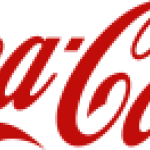- Settore: Beverages
- Number of terms: 1833
- Number of blossaries: 0
- Company Profile:
American non-alcoholic beverage concentrate manufacturer with over 400 brands of soft drinks and syrups, including its flagship product Coca-Cola. It distributes its products in syrup form, which are then carbonated and bottled by franchisee bottlers around the world.
Vitamin E is a powerful antioxidant. It protects body cells by neutralising free radicals which are damaging molecules.
Industry:Beverages
Zinc Picolinate is a source of zinc, an essential nutrient for the body. Zinc is needed for the normal functioning of the immune system.
Industry:Beverages
Acacia, also called Gum Arabic, comes from acacia trees and is used to suspend ingredients that are not water soluble in beverages, creating an emulsion.
Industry:Beverages
Acesulfame Potassium, also known as “Ace-K”, is a low-calorie sweetener discovered in 1967. It is 200 times sweeter than sugar.
Industry:Beverages
Acids, which include phosphoric acid and citric acid, and acidic salts help to provide flavoring. They are responsible for the tart taste which helps to balance the sweetness. They also help to reduce the growth of microorganisms (i.e., protect the food from spoiling).
Industry:Beverages
Alpha Tocopherol Acetate is a form of Vitamin E. Vitamin E is a powerful antioxidant. It protects body cells by neutralising free radicals which are damaging molecules.
Industry:Beverages
Artificial flavours are substances used to impart flavour that are not derived from a natural substance such as a spice, fruit or fruit juice, vegetables or herbs.
Industry:Beverages
Ascorbic Acid is Vitamin C. Vitamin C is an antioxidant vitamin. It helps to protect body cells and tissues and helps to maintain healthy skin. Ascorbic acid is also used as a preservative in some products and this use is indicated in the ingredient statement.
Industry:Beverages
Aspartame is a low-calorie sweetener made primarily of two amino acids; aspartic acid and phenylalanine. Aspartame has been shown to be safe for everyone, including children and pregnant women. When used in foods and beverages a warning on the labels is provided to people who can’t metabolise aspartame: PHENYLKETONURICS: CONTAINS PHENYLALANINE.
Industry:Beverages
